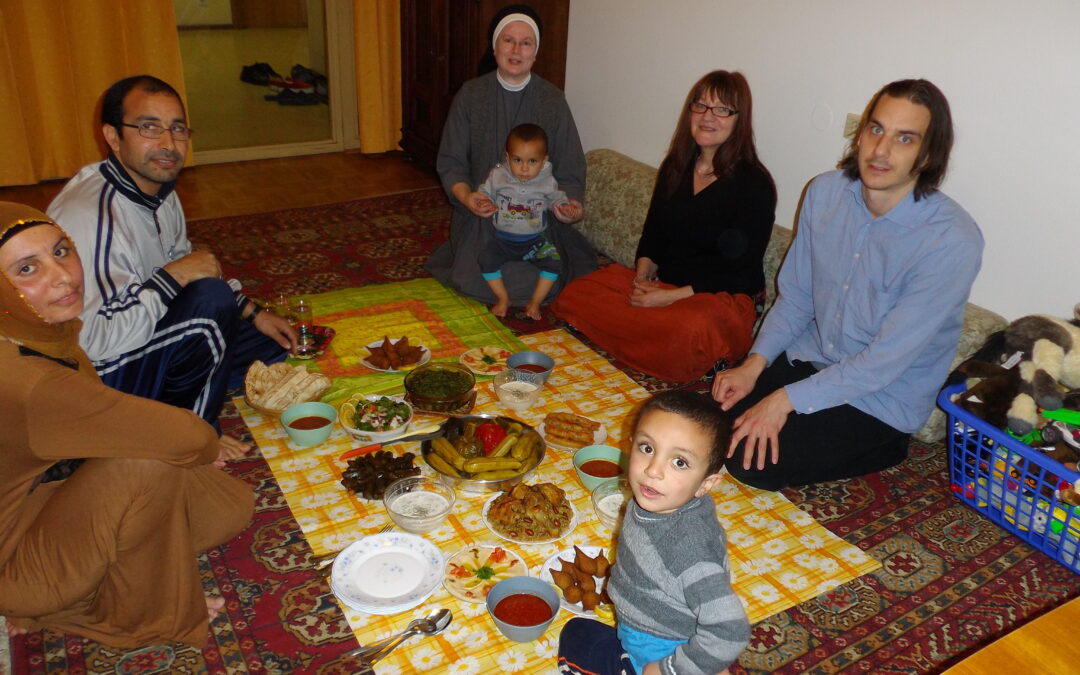
Jun 11, 2016 | Focolare Worldwide
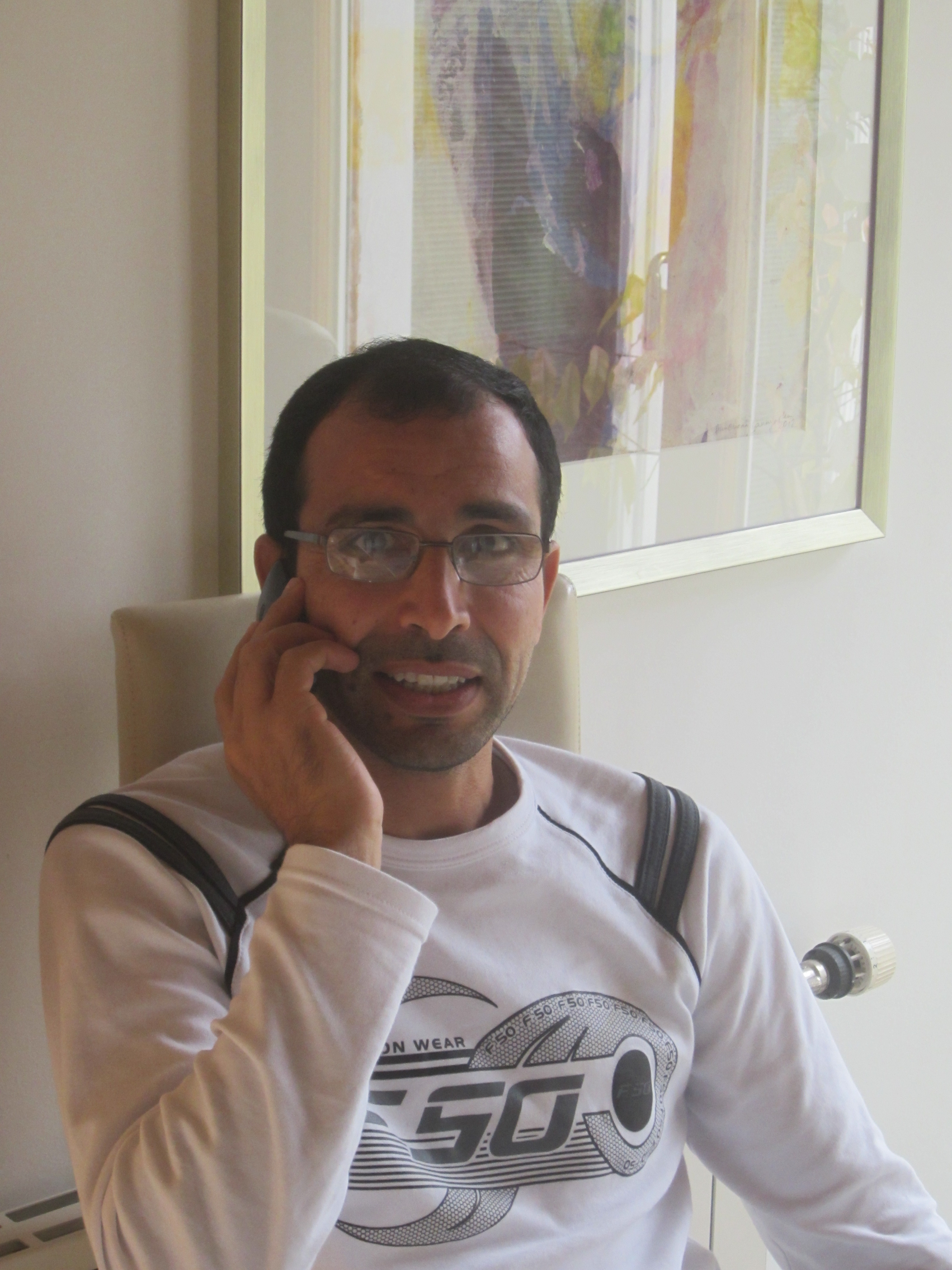 “I had to leave everything behind: my wife, two small children and my country. On the other hand, I didn’t have a choice. Being young and a teacher, I would have had to follow ISIS and spread its ideas. But since I opposed it, if I had remained there they would have murdered me.” When Mohamed reached Graz, Austria, like many other immigrants he was parked in a refugee camp, doing nothing for months and having absolutely no contact with the outside world. “We felt so isolated and depressed,” he recounts, “but then somebody did begin to show an intererst in us.” It was the local Focolare community which, through the mediation of a Syrian friend who had been living in Graz for three years, invited 40 of the Syrian refugees from the camp to to get together at a parish hall. This gave them the opportunity to present their precise needs: to learn the language and find a job. The community got to work and in a short time managed to put together a German lanugage course. Some gave money for books, one woman was able to find 15 bicycles from neighbours, which she had repaired at her own expense for the students that had to travel 10 km to attend the lessons. Others found odd jobs for them fixing up houses and doing gardening work. “We finally had something useful that we could do,” Mohamed whispered with relief. “Finally someone took us by the hand and appreciated us.” A friendship began that only deepened and became more heartfelt. It was only logical to get together, to share meals with one another and also to begin a cultural and religious dialogue. The first step was to attend the mosque together where they met many other people. Once, they were more than 400: “It was a great thing for us,” Mohamed confided. “Finally, we were able to feel like ourselves, there we could forget about what had happened to us and enter into direct contact with God. Sharing this moment with Muslims and Christians together made us feel even closer to one another.”
“I had to leave everything behind: my wife, two small children and my country. On the other hand, I didn’t have a choice. Being young and a teacher, I would have had to follow ISIS and spread its ideas. But since I opposed it, if I had remained there they would have murdered me.” When Mohamed reached Graz, Austria, like many other immigrants he was parked in a refugee camp, doing nothing for months and having absolutely no contact with the outside world. “We felt so isolated and depressed,” he recounts, “but then somebody did begin to show an intererst in us.” It was the local Focolare community which, through the mediation of a Syrian friend who had been living in Graz for three years, invited 40 of the Syrian refugees from the camp to to get together at a parish hall. This gave them the opportunity to present their precise needs: to learn the language and find a job. The community got to work and in a short time managed to put together a German lanugage course. Some gave money for books, one woman was able to find 15 bicycles from neighbours, which she had repaired at her own expense for the students that had to travel 10 km to attend the lessons. Others found odd jobs for them fixing up houses and doing gardening work. “We finally had something useful that we could do,” Mohamed whispered with relief. “Finally someone took us by the hand and appreciated us.” A friendship began that only deepened and became more heartfelt. It was only logical to get together, to share meals with one another and also to begin a cultural and religious dialogue. The first step was to attend the mosque together where they met many other people. Once, they were more than 400: “It was a great thing for us,” Mohamed confided. “Finally, we were able to feel like ourselves, there we could forget about what had happened to us and enter into direct contact with God. Sharing this moment with Muslims and Christians together made us feel even closer to one another.” 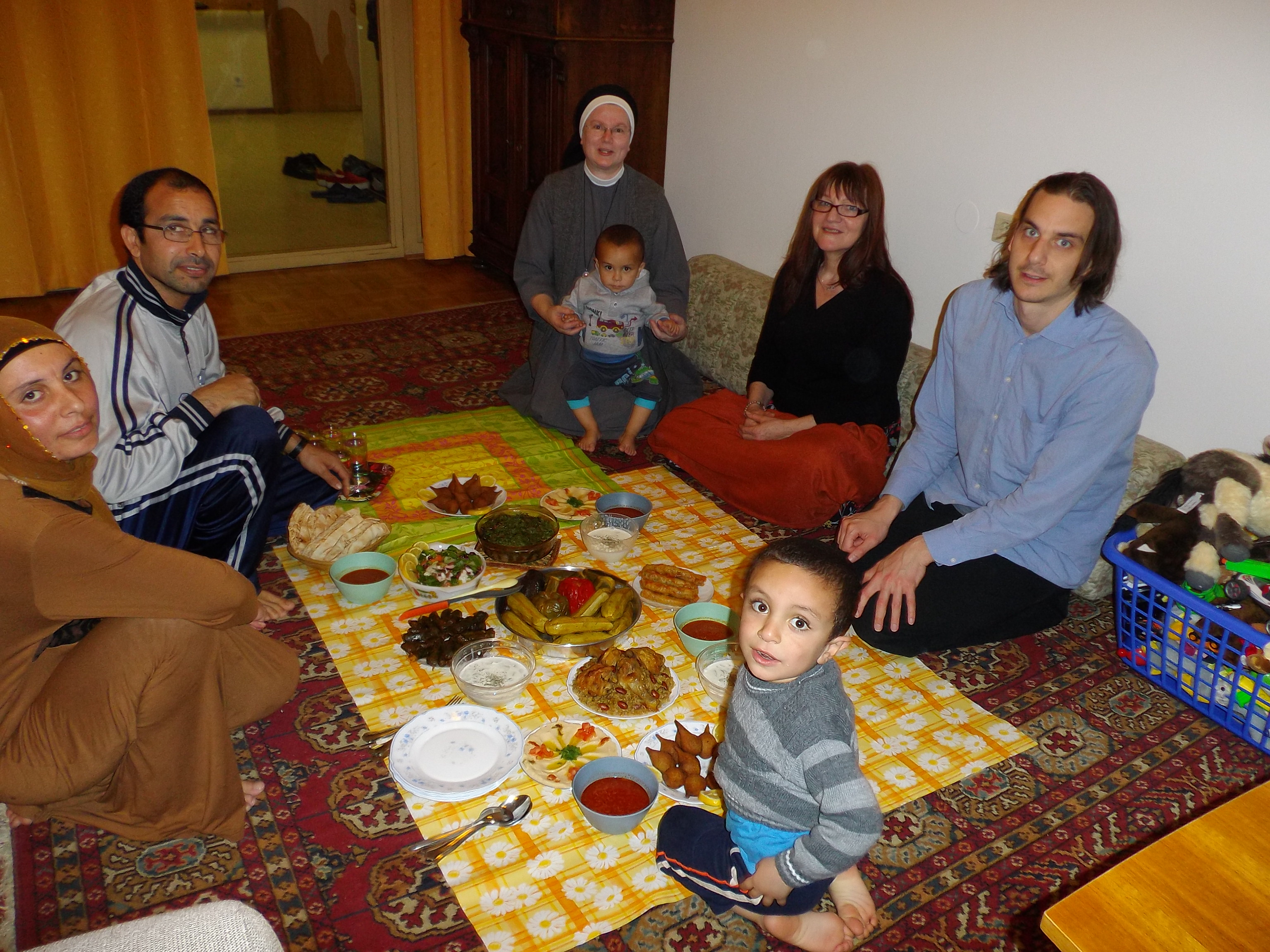 Four Muslims attended the summer Mariapolis, which coincided with the end of Ramadan and was celebrated by all with Arab music, dancing and Syrian sweets. During those days Mohamed learned of his mother’s death. It was a moving occasion to pray together for her and to recite some Psalms that respected everyone’s feelings. Trying to understand another person’s pain is also a form of dialogue. Mohamed then asked the Authorities for permission to reunite with his family in Austria, which turned out to be very complicated. His wife went on foot 22 times for 7 hours amidst cold, hunger and danger to the border – and was promptly sent back. Once she was even locked up in prison. But she finally managed to cross. Thus the long awaited family reunion drew nearer, but it was suggested that they settle in Vienna rather than Graz. Mohamed regretfully left his friends in Graz, unaware of the warm acceptance that would also receive amongst the Focolare community in the capital, which had been notified of his arrival. The community got busy finding a place for the family to live, which was not easy due to the scarcity of housing. They thought of some women religious friends who ran a home for the elderly. In just one day there was already a positive response thanks to a reassuring conversation with the Focolare members. So, now it’s been two months that Mohamed and his family have been living with the Catholic reverend sisters, without any inconvenience for either side: the sisters, acknowledging and respecting the customs of their Muslim guests and the family dwelling in a structure with many prominent Catholic signs. This is also part of dialogue and, as Mohamed declares: “Christians and Muslims, we’re truly brothers and sisters.”
Four Muslims attended the summer Mariapolis, which coincided with the end of Ramadan and was celebrated by all with Arab music, dancing and Syrian sweets. During those days Mohamed learned of his mother’s death. It was a moving occasion to pray together for her and to recite some Psalms that respected everyone’s feelings. Trying to understand another person’s pain is also a form of dialogue. Mohamed then asked the Authorities for permission to reunite with his family in Austria, which turned out to be very complicated. His wife went on foot 22 times for 7 hours amidst cold, hunger and danger to the border – and was promptly sent back. Once she was even locked up in prison. But she finally managed to cross. Thus the long awaited family reunion drew nearer, but it was suggested that they settle in Vienna rather than Graz. Mohamed regretfully left his friends in Graz, unaware of the warm acceptance that would also receive amongst the Focolare community in the capital, which had been notified of his arrival. The community got busy finding a place for the family to live, which was not easy due to the scarcity of housing. They thought of some women religious friends who ran a home for the elderly. In just one day there was already a positive response thanks to a reassuring conversation with the Focolare members. So, now it’s been two months that Mohamed and his family have been living with the Catholic reverend sisters, without any inconvenience for either side: the sisters, acknowledging and respecting the customs of their Muslim guests and the family dwelling in a structure with many prominent Catholic signs. This is also part of dialogue and, as Mohamed declares: “Christians and Muslims, we’re truly brothers and sisters.”

Jun 9, 2016 | Focolare Worldwide
 The spacious “Knowledge Sharing Centre” Hall of the John Paul II Catholic University of Lublin hosted a Conflicts, Dialogue and Culture of Unity Conference , June 3-4, 2016. The conference was meant to promote the transmission of knowledge through academic dialogue amongst 180 people, including scholars and professors from a variety of academic fields of the social sciences. Ninety five interactive presentations were given that included discussions, questions and answers, as well as requests for sharing research efforts. It was a gift shared amongst different specializations, but also amongst generations and geographic regions of Europe, and it was open to the challenges of the whole world. The conference that opened with Jesús Morán’s presentation titled “The Culture of Unity and the great challenges of humanity today” was motivated by the 20th anniversary of the conferral of the honorary doctorate in Social Sciences to Chiara Lubich, by the Catholic University of Lublin in June 1996. The conferral speech by Professor Adam Biela explained the motivation: The charism of unity “is a concrete and practical actualization of a new vision of social, economic, political, educational structures and of religious relations. It guides, recommends, suggests, teaches and promotes unity” among people. Biela grasped in the revolutionary inspiration of Chiara Lubich that began to manifest itself in the 1940s, the elements of a new paradigm for the social sciences, which led him to coin the unprecedented term: paradigm of unity. The event, 20 years later, in Lublin was “a complex and interesting” meeting, according to Professor Italo Fiorin, president of the graduate school of Formation Science at LUMSA University in Rome, Italy. “. . . especially because of the title, which connects three words: Conflict – reflecting on the not catastrophic but problematic situation of the world that calls for a sense of responsibility. Dialogue: as the path that leads to and changes conflict into something else through positive action. Unity: as the result of a dialogue that is not expressed in reaching a single way of thinking, but of reaching a greater awareness of one’s own identity.” “For 200 to 300 years knowledge has been divided into fields,” says neuro-scientist Catherine Belzung from the University of Tours, France. “But the actual fragmentation prevents progress from being made. The time of interdisciplinary dialogue has arrived. Chiara Lubich’s thought seems to me the paradigm to keep before us when we are interested in interdisciplinary research, because it’s a Trinitarian paradigm: Each field remains distinct, but must have within it the knowledge of the other disciplines in order to be transformed and, in this way, continue the dialogue. I think that the unity and distinction model that is already being proposed in the spiritual field can be very easily transferred to the field of interdisciplinary dialogue.” Professor Marek Rembierz, pedagogue from the University of Silesia, Katowice, Poland, remarked: “It turned out very interesting for me to think on an interdisciplinary plane. And it took quite a change in mentality: modifying the language of science and culture with the language of the heart. It was a source of inspiration for the participants and could also be so for the social life of individuals. Gianvittorio Caprara, full professor of psychology and social neurosciences at Sapienza University in Rome: “Chiara Lubich had some particularly good and fertile intuitions; fertile because they inspired a work, a movement; now they inspire this conference and other research. It’s ongoing reflection that becomes inspiration. One particular discovery for me was the deep significance of the concept of fraternity, precisely in a society like ours that seriously risks not having brothers and sisters anymore. I encourage the Focolare to insist even more on the systematic research of knowledge so that the action can be even more transformative and efficacious.” “With regard to fraternity,” Fiorin says, “Professor Stefano Zamagni worked on a fascinating point in his presentation on the Economy of Communion and even referred it to politics. I believe that such a reading is also applicable to education, to inspire the education and teaching connection and to lead to important educational solutions. It’s a terrain that merits exploring, to which I intend to devote my attention.” The closing session of the conference was entrusted to Professor Biela, Daniela Ropelato, vice-president of Sophia University Institute (IUS) and Renata Simon from the International Focolare Centre in Rocca di Papa, Italy. A thought from Chiara Lubich offered some powerful guidelines to give continuity to the interdisciplinary dialogue that permeated the conference: “In order to welcome [God’s] All within you, you need to be the nothingness of Jesus Forsaken. (. . .) You have to place yourself in front of everyone in a learning position, because you really do have something to learn. And only nothingness gathers all and holds it tightly to itself in unity.” It was an encouragement that was unanimously accepted: to collaborate, with competence, wisdom and an ability to dialogue even on the academic plane.
The spacious “Knowledge Sharing Centre” Hall of the John Paul II Catholic University of Lublin hosted a Conflicts, Dialogue and Culture of Unity Conference , June 3-4, 2016. The conference was meant to promote the transmission of knowledge through academic dialogue amongst 180 people, including scholars and professors from a variety of academic fields of the social sciences. Ninety five interactive presentations were given that included discussions, questions and answers, as well as requests for sharing research efforts. It was a gift shared amongst different specializations, but also amongst generations and geographic regions of Europe, and it was open to the challenges of the whole world. The conference that opened with Jesús Morán’s presentation titled “The Culture of Unity and the great challenges of humanity today” was motivated by the 20th anniversary of the conferral of the honorary doctorate in Social Sciences to Chiara Lubich, by the Catholic University of Lublin in June 1996. The conferral speech by Professor Adam Biela explained the motivation: The charism of unity “is a concrete and practical actualization of a new vision of social, economic, political, educational structures and of religious relations. It guides, recommends, suggests, teaches and promotes unity” among people. Biela grasped in the revolutionary inspiration of Chiara Lubich that began to manifest itself in the 1940s, the elements of a new paradigm for the social sciences, which led him to coin the unprecedented term: paradigm of unity. The event, 20 years later, in Lublin was “a complex and interesting” meeting, according to Professor Italo Fiorin, president of the graduate school of Formation Science at LUMSA University in Rome, Italy. “. . . especially because of the title, which connects three words: Conflict – reflecting on the not catastrophic but problematic situation of the world that calls for a sense of responsibility. Dialogue: as the path that leads to and changes conflict into something else through positive action. Unity: as the result of a dialogue that is not expressed in reaching a single way of thinking, but of reaching a greater awareness of one’s own identity.” “For 200 to 300 years knowledge has been divided into fields,” says neuro-scientist Catherine Belzung from the University of Tours, France. “But the actual fragmentation prevents progress from being made. The time of interdisciplinary dialogue has arrived. Chiara Lubich’s thought seems to me the paradigm to keep before us when we are interested in interdisciplinary research, because it’s a Trinitarian paradigm: Each field remains distinct, but must have within it the knowledge of the other disciplines in order to be transformed and, in this way, continue the dialogue. I think that the unity and distinction model that is already being proposed in the spiritual field can be very easily transferred to the field of interdisciplinary dialogue.” Professor Marek Rembierz, pedagogue from the University of Silesia, Katowice, Poland, remarked: “It turned out very interesting for me to think on an interdisciplinary plane. And it took quite a change in mentality: modifying the language of science and culture with the language of the heart. It was a source of inspiration for the participants and could also be so for the social life of individuals. Gianvittorio Caprara, full professor of psychology and social neurosciences at Sapienza University in Rome: “Chiara Lubich had some particularly good and fertile intuitions; fertile because they inspired a work, a movement; now they inspire this conference and other research. It’s ongoing reflection that becomes inspiration. One particular discovery for me was the deep significance of the concept of fraternity, precisely in a society like ours that seriously risks not having brothers and sisters anymore. I encourage the Focolare to insist even more on the systematic research of knowledge so that the action can be even more transformative and efficacious.” “With regard to fraternity,” Fiorin says, “Professor Stefano Zamagni worked on a fascinating point in his presentation on the Economy of Communion and even referred it to politics. I believe that such a reading is also applicable to education, to inspire the education and teaching connection and to lead to important educational solutions. It’s a terrain that merits exploring, to which I intend to devote my attention.” The closing session of the conference was entrusted to Professor Biela, Daniela Ropelato, vice-president of Sophia University Institute (IUS) and Renata Simon from the International Focolare Centre in Rocca di Papa, Italy. A thought from Chiara Lubich offered some powerful guidelines to give continuity to the interdisciplinary dialogue that permeated the conference: “In order to welcome [God’s] All within you, you need to be the nothingness of Jesus Forsaken. (. . .) You have to place yourself in front of everyone in a learning position, because you really do have something to learn. And only nothingness gathers all and holds it tightly to itself in unity.” It was an encouragement that was unanimously accepted: to collaborate, with competence, wisdom and an ability to dialogue even on the academic plane.
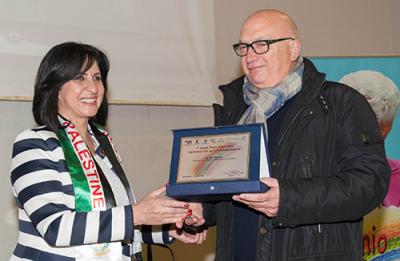
Jun 7, 2016 | Focolare Worldwide
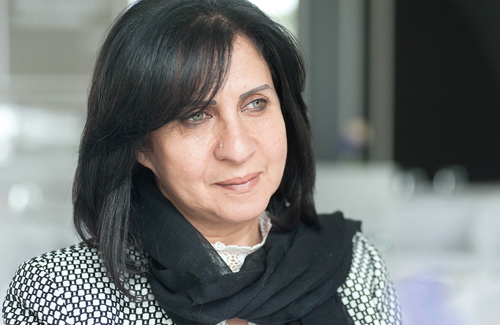 “I met Bella, a Jewish woman, at a Focolare centre in Jerusalem. I had told her the story about my husband in an Israeli jail where he was tortured. She listened to me, although I noted a certain inner conflict. She was in front of a crossroads: whether to be an Israeli and therefore reject everything I was saying, or to feel compassionate toward me. At first she wasn’t able to accept me and went back to the room where we had met. I followed her and told her I was sorry that I had upset her. Bella explained to me that it wasn’t my fault, but that of the system. Then I asked if we could begin again, and she was touched. That’s how our friendship was born. A wall separates my city of Bethlehem from her city of Jerusalem, but there are no longer walls between the two of us. I pray that many Israeli can look at our friendship. Bella lives the spirit of the Focolare in the sense that we’re all children of God, and it’s only love and compassion that leads us to live together with one another. We human beings have built a wall around Bethlehem, but you cannot build anything alone. God gave us the freedom to build it, or to tear it down within us as well.” This is how Vera Baboun, the first Catholic woman mayor of Bethlehem responded to the question of whether it was possible to establish true friendship between Palestinians and Israeli. The occasion of the meeting was the7th Chiara Lubich, Manfredonia City For Universal Brotherhood Award” in March 2016.
“I met Bella, a Jewish woman, at a Focolare centre in Jerusalem. I had told her the story about my husband in an Israeli jail where he was tortured. She listened to me, although I noted a certain inner conflict. She was in front of a crossroads: whether to be an Israeli and therefore reject everything I was saying, or to feel compassionate toward me. At first she wasn’t able to accept me and went back to the room where we had met. I followed her and told her I was sorry that I had upset her. Bella explained to me that it wasn’t my fault, but that of the system. Then I asked if we could begin again, and she was touched. That’s how our friendship was born. A wall separates my city of Bethlehem from her city of Jerusalem, but there are no longer walls between the two of us. I pray that many Israeli can look at our friendship. Bella lives the spirit of the Focolare in the sense that we’re all children of God, and it’s only love and compassion that leads us to live together with one another. We human beings have built a wall around Bethlehem, but you cannot build anything alone. God gave us the freedom to build it, or to tear it down within us as well.” This is how Vera Baboun, the first Catholic woman mayor of Bethlehem responded to the question of whether it was possible to establish true friendship between Palestinians and Israeli. The occasion of the meeting was the7th Chiara Lubich, Manfredonia City For Universal Brotherhood Award” in March 2016.  Bethlehem is a Palestinian city located in the West Bank. It has a population of 40,000 people, of which 28% are Christian and 72% Muslim. It is the city where Jesus was born, some 10 km south of Jerusalem. The Church of the Nativity is one of the oldest churches in the world. Nevertheless, “the wall also conditions our faith, because we were accustomed to visiting the original sites of Jesus’s life from the time we were children. There is a whole generation of young Palestinians that has never prayed at the Holy Sepluchre in Jerusalem,” said Vera Baboun. “We’re the Nativity capital of the world. We celebrate and offer a message of peace to the world, while peace is precisely what is missing in Bethlehem. After the 40% rate of cancellations this year we decided with the City Council to lower taxes on the tourist industry by 80%. We did it to offer them support even though it signifies a depletion of resources for the Municipality. But who supports us? Who supports our dual identity: our universal Christian identity and our Palestinian identity? But what makes you do it? “Only God’s love. I feel it very strongly. I don’t care at all about the power, the fame. Being mayor is a burden for me that costs me much. After the death of my husband and after having worked my whole life in education, I decided to take my husband’s place because he was involved politically in working for the liberation of Palestine.” You have often declared: “Will the world ever be able to live in peace as long as the city of peace is walled up?” “As long as the city of Bethlehem is walled up, there will be a wall around peace. We’re under siege. As for the world, it would be better to work at liberating peace not only for Bethlehem, but for our own sake to free ourselves from the way of evil, from using religion as a mask to cover up evil and war.” Interview byAurelio Molé for Città Nuova (see Città Nuova, No. 5, May 2016)
Bethlehem is a Palestinian city located in the West Bank. It has a population of 40,000 people, of which 28% are Christian and 72% Muslim. It is the city where Jesus was born, some 10 km south of Jerusalem. The Church of the Nativity is one of the oldest churches in the world. Nevertheless, “the wall also conditions our faith, because we were accustomed to visiting the original sites of Jesus’s life from the time we were children. There is a whole generation of young Palestinians that has never prayed at the Holy Sepluchre in Jerusalem,” said Vera Baboun. “We’re the Nativity capital of the world. We celebrate and offer a message of peace to the world, while peace is precisely what is missing in Bethlehem. After the 40% rate of cancellations this year we decided with the City Council to lower taxes on the tourist industry by 80%. We did it to offer them support even though it signifies a depletion of resources for the Municipality. But who supports us? Who supports our dual identity: our universal Christian identity and our Palestinian identity? But what makes you do it? “Only God’s love. I feel it very strongly. I don’t care at all about the power, the fame. Being mayor is a burden for me that costs me much. After the death of my husband and after having worked my whole life in education, I decided to take my husband’s place because he was involved politically in working for the liberation of Palestine.” You have often declared: “Will the world ever be able to live in peace as long as the city of peace is walled up?” “As long as the city of Bethlehem is walled up, there will be a wall around peace. We’re under siege. As for the world, it would be better to work at liberating peace not only for Bethlehem, but for our own sake to free ourselves from the way of evil, from using religion as a mask to cover up evil and war.” Interview byAurelio Molé for Città Nuova (see Città Nuova, No. 5, May 2016)
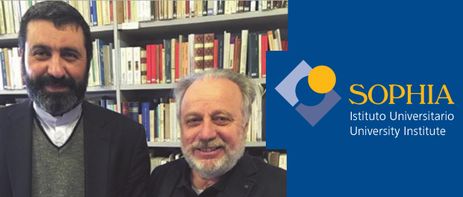
Jun 3, 2016 | Focolare Worldwide
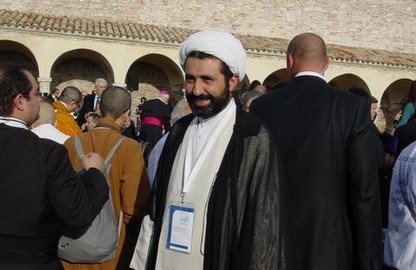 The bi-monthly journal of the British Islamic Cultural Centre published a brief account of the recent visit to the Sophia University Institute by Dr Mohammad Ali Shomali, Director of the International Institute of Islamic Studies in Qum, Iran. Dr Shomali, who currently lives in London and directs the Islamic Centre in Great Britain, is a well-known figure in the Shia world. He is very active in the field of interreligious dialogue, and thanks to him various moments of encounter between Shi’a Muslims and Benedictine Monks have been organised organised, allowing relationships of trust to be established. The visit on 26 April to Sophia is a consequence of the long and fruitful pathway which made the shared experience and academic collaboration possible in Loppiano which has this characteristic. Islam today reported the news of this visit highlighting the importance of this extraordinary growing friendship. Here are some extracts: Sophia University Institute in Loppiano (Florence, Italy) was established in honour of Chiara Lubich (founder of the Focolare Movement) in 2008 after her death. The relationship between the university and the Shi’a Scholars started long before it became a university. Hujjatul-Islam Dr Muhammad Ali Shomali’s first visit took place back in 1999. These meeting represent the foundation of a long friendship and dialogue. Discussions varied from talking about Sophia (Latin meaning Wisdom) to the future of humanity. From the discussion between the university academics and Shi’a scholars it soon became clear that they had many common ideas about unity and inter-religious dialogue that could be developed in practical projects.
The bi-monthly journal of the British Islamic Cultural Centre published a brief account of the recent visit to the Sophia University Institute by Dr Mohammad Ali Shomali, Director of the International Institute of Islamic Studies in Qum, Iran. Dr Shomali, who currently lives in London and directs the Islamic Centre in Great Britain, is a well-known figure in the Shia world. He is very active in the field of interreligious dialogue, and thanks to him various moments of encounter between Shi’a Muslims and Benedictine Monks have been organised organised, allowing relationships of trust to be established. The visit on 26 April to Sophia is a consequence of the long and fruitful pathway which made the shared experience and academic collaboration possible in Loppiano which has this characteristic. Islam today reported the news of this visit highlighting the importance of this extraordinary growing friendship. Here are some extracts: Sophia University Institute in Loppiano (Florence, Italy) was established in honour of Chiara Lubich (founder of the Focolare Movement) in 2008 after her death. The relationship between the university and the Shi’a Scholars started long before it became a university. Hujjatul-Islam Dr Muhammad Ali Shomali’s first visit took place back in 1999. These meeting represent the foundation of a long friendship and dialogue. Discussions varied from talking about Sophia (Latin meaning Wisdom) to the future of humanity. From the discussion between the university academics and Shi’a scholars it soon became clear that they had many common ideas about unity and inter-religious dialogue that could be developed in practical projects. Dr Shomali’s recent visit to the university took place in February 2015, where he held public as well as informal meetings with staff and students. Following that meeting Dr Shomali was invited by the president of the university Professor Msgr. Coda Piero to return to the university and teach a course to MA students which was scheduled to start in 2016. The course which is based on inter-religious dialogue was for the first time to be taught by lecturers from different religious traditions in order to share similar experiences and ideas. Dr Shomali delivered his first lecture during a four-hour morning and afternoon session in April 2016. He talked about his personal involvement in inter-religious dialogue, presenting a brief summary of his twenty-year rich experience in the field of interfaith. A part of his discussion was also about Shia Islam and the foundation for dialogue according to Shia Islam. Dr Shomali further spoke about the importance of inter-religious dialogue and the future of humanity based on unity. Following this academic engagement, the plan is to have a three-day programme in July 2016 (after the month of Ramadhan). The university president Prof. Coda Piero and Dr Shomali will be discussing subjects related to unity between different faith groups, Muslim and Christians in particular and some of the ideas can be put into action in the near future. Hujjatul-Islam Dr Shomali will be taking a group of scholars in the next encounter to present the Muslim Shia perspective while Professor Coda Piero will lead the Catholic/Focolare Movement side. “The April meeting was a fruitful meeting. After many years of friendship and talk, the two groups are now ready to move into more focused, scholarly but at the same time spiritual discussion on unity and cooperation,” said Dr Shomali.
Dr Shomali’s recent visit to the university took place in February 2015, where he held public as well as informal meetings with staff and students. Following that meeting Dr Shomali was invited by the president of the university Professor Msgr. Coda Piero to return to the university and teach a course to MA students which was scheduled to start in 2016. The course which is based on inter-religious dialogue was for the first time to be taught by lecturers from different religious traditions in order to share similar experiences and ideas. Dr Shomali delivered his first lecture during a four-hour morning and afternoon session in April 2016. He talked about his personal involvement in inter-religious dialogue, presenting a brief summary of his twenty-year rich experience in the field of interfaith. A part of his discussion was also about Shia Islam and the foundation for dialogue according to Shia Islam. Dr Shomali further spoke about the importance of inter-religious dialogue and the future of humanity based on unity. Following this academic engagement, the plan is to have a three-day programme in July 2016 (after the month of Ramadhan). The university president Prof. Coda Piero and Dr Shomali will be discussing subjects related to unity between different faith groups, Muslim and Christians in particular and some of the ideas can be put into action in the near future. Hujjatul-Islam Dr Shomali will be taking a group of scholars in the next encounter to present the Muslim Shia perspective while Professor Coda Piero will lead the Catholic/Focolare Movement side. “The April meeting was a fruitful meeting. After many years of friendship and talk, the two groups are now ready to move into more focused, scholarly but at the same time spiritual discussion on unity and cooperation,” said Dr Shomali.
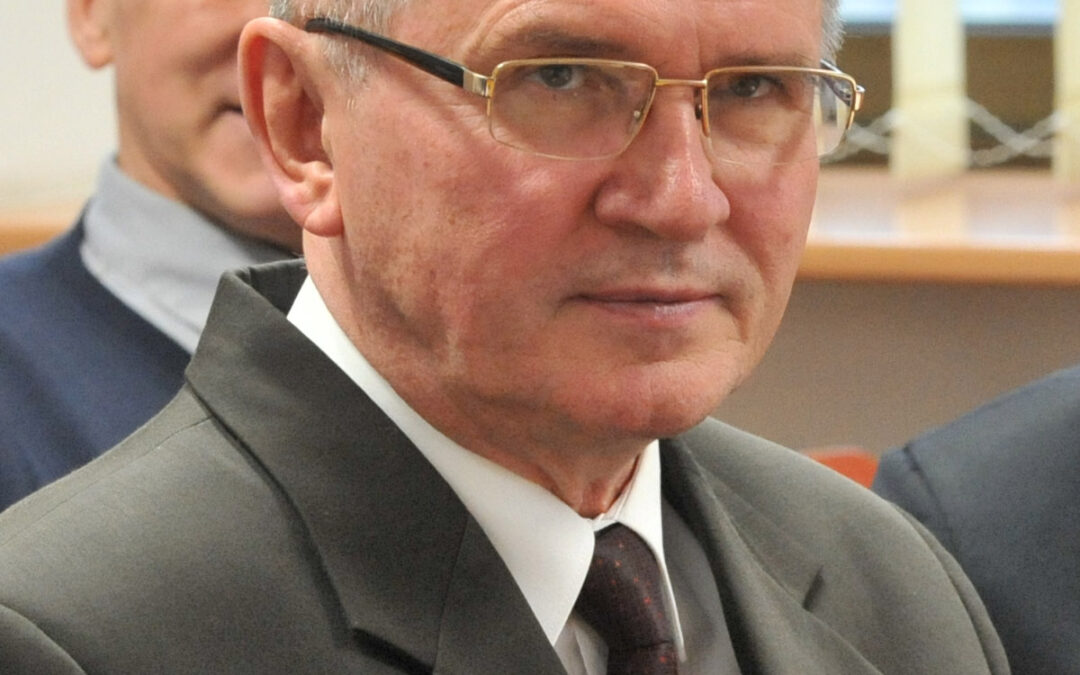
Jun 3, 2016 | Focolare Worldwide
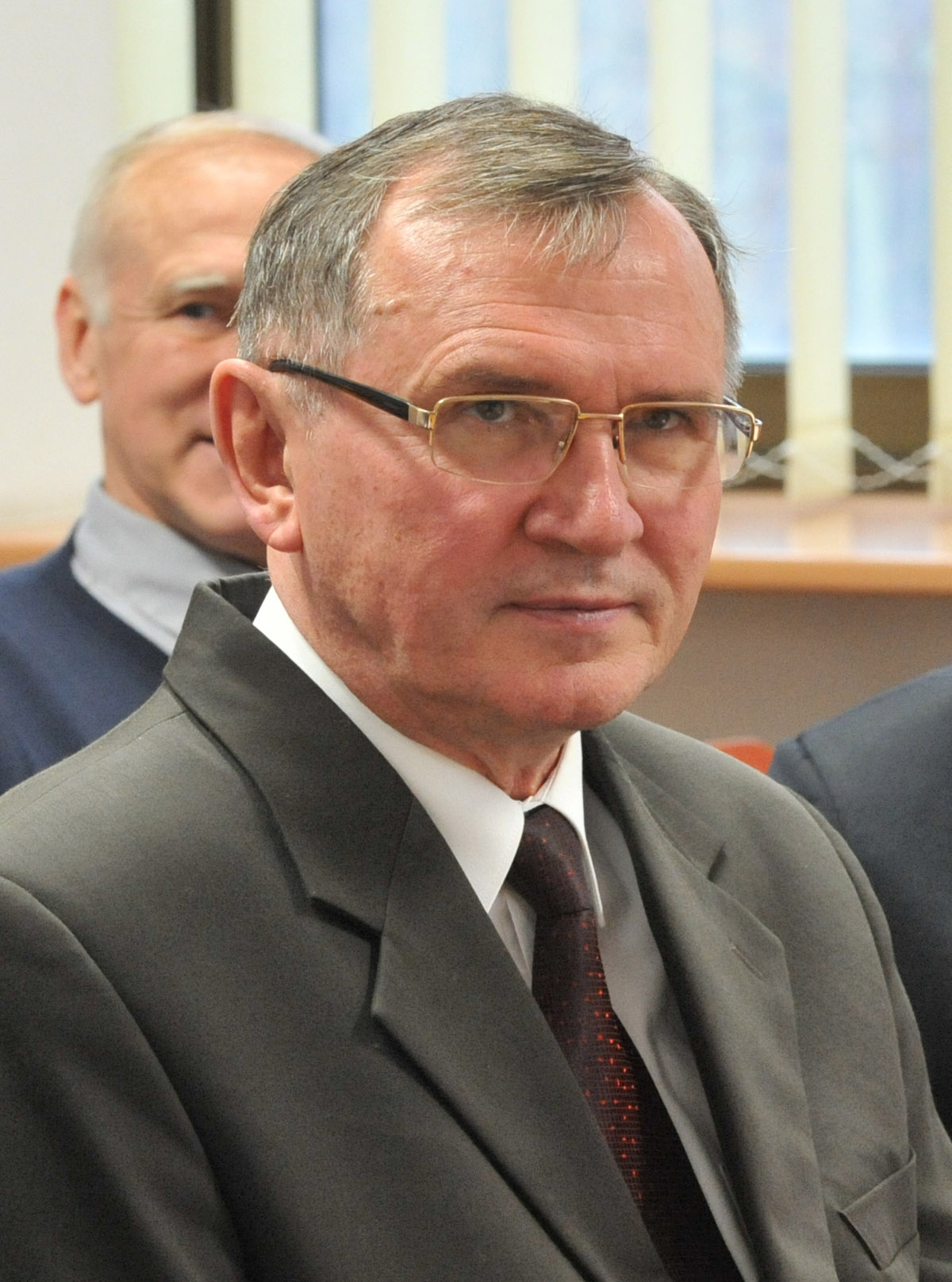 The conferral of the Honorary Doctorate to Focolare foundress, Chiara Lubich (1920-2008) originated with Adam Biela. At that time he was the Chair of the School of Social Sciences at the Catholic University of Lublino. Following that honorary degree 15 others would be conferred to Chiara from around the world and in a variety academic fields. In his conferral speech Professor Biela spoke of a “Copernican Revolution” to introduce the idea of a new approach (paradigm) for the social sciences. We ask Biela what motivated him to promote the doctorate. “In my conferral speech I had explained the main reasons for the conferral of the Honorary Doctorate in Social Sciences to the foundress of the Focolare Movement, Chiara Lubich, by the Catholic University of Lublin in June 1996. An American philosopher of science, Thomas Kun (1962) thought the Copernican Revolution was the best illustration of what took place with the scientific revolution. In its essence [the Copernican approach or paradigm] signified a change of mentality. Copernicus had to change the firmly-established geocentric system that was at work not only in the sciences of his time, but also in the culture, tradition, perception of society, even in the mentality of the religious and political authorities. And he did it in a manner that was careful, empirical, methodological and psychological. In a similar way, through her social activity, Chiara Lubich was the source of a revolutionary inspiration for the creation of an approach (paradigm) in the field of social sciences. In an extremely dangerous situation in Trent, Italy, in 1943 she decided not to escape from the threat to her own life, but to join her friends in helping other people survive who were in far more difficult situations. She decided to face the risk of the bombardments of the War, in order to stay with the children and elderly who were left all alone and in need of assistance. That type of experience made her rediscover the community as a model of life, and it allowed the charism of unity to be materialized and clarified. In any case the devolopment of this charism shows it to be a concrete and practical actualization of a new vision of social, economic, political, educational, religious and relational structures, which guides, suggests, encourages and promotes unity with other people. In my conferral speech I used the idea of a unity approach (paradigm) to stress the social activity of Chiara Lubich and the Focolare Movement for the construction of psycho-social structures for unity in different fields: for example, in the Economy of Communion in the Political Movement for Unity; in Net One and its journalists for unity; in ecumenical and interreligious friendships.” On June 3rd and June 4th an academic conference titled “Conflicts, Dialogue and the Culture of Unity” and dedicated to John Paul II will be held at the University in Lublin. What is the purpose? “In June 1966 the John Paul II Catholic University had truly found a methodological way to express the novelty, uniqueness, heuristic and applicable value of the charism of unity not only in the social sciences, but also in other academic fields. We are truly pleased that our message about the methodological validity of the charism of unity has found an understanding in so many academic centres that they have conferred honorary degrees to Chiara Lubich. The concept of a unity approach (paradigm) is a big inspiration that will lead the social sciences to come up with their own research models with a power and mental and methodological potential that will be able to offer a new social vision of the world. In the meantime, the Conflicts, Dialogue and Culture of Unity Conference will examine the extent to which the praxis of the unity approach (paradigm) that is founded on the spirituality of unity, is able to resolve conceptual problems, as well as applications for the building of social, economic and political integration in today’s Europe and in the world.”
The conferral of the Honorary Doctorate to Focolare foundress, Chiara Lubich (1920-2008) originated with Adam Biela. At that time he was the Chair of the School of Social Sciences at the Catholic University of Lublino. Following that honorary degree 15 others would be conferred to Chiara from around the world and in a variety academic fields. In his conferral speech Professor Biela spoke of a “Copernican Revolution” to introduce the idea of a new approach (paradigm) for the social sciences. We ask Biela what motivated him to promote the doctorate. “In my conferral speech I had explained the main reasons for the conferral of the Honorary Doctorate in Social Sciences to the foundress of the Focolare Movement, Chiara Lubich, by the Catholic University of Lublin in June 1996. An American philosopher of science, Thomas Kun (1962) thought the Copernican Revolution was the best illustration of what took place with the scientific revolution. In its essence [the Copernican approach or paradigm] signified a change of mentality. Copernicus had to change the firmly-established geocentric system that was at work not only in the sciences of his time, but also in the culture, tradition, perception of society, even in the mentality of the religious and political authorities. And he did it in a manner that was careful, empirical, methodological and psychological. In a similar way, through her social activity, Chiara Lubich was the source of a revolutionary inspiration for the creation of an approach (paradigm) in the field of social sciences. In an extremely dangerous situation in Trent, Italy, in 1943 she decided not to escape from the threat to her own life, but to join her friends in helping other people survive who were in far more difficult situations. She decided to face the risk of the bombardments of the War, in order to stay with the children and elderly who were left all alone and in need of assistance. That type of experience made her rediscover the community as a model of life, and it allowed the charism of unity to be materialized and clarified. In any case the devolopment of this charism shows it to be a concrete and practical actualization of a new vision of social, economic, political, educational, religious and relational structures, which guides, suggests, encourages and promotes unity with other people. In my conferral speech I used the idea of a unity approach (paradigm) to stress the social activity of Chiara Lubich and the Focolare Movement for the construction of psycho-social structures for unity in different fields: for example, in the Economy of Communion in the Political Movement for Unity; in Net One and its journalists for unity; in ecumenical and interreligious friendships.” On June 3rd and June 4th an academic conference titled “Conflicts, Dialogue and the Culture of Unity” and dedicated to John Paul II will be held at the University in Lublin. What is the purpose? “In June 1966 the John Paul II Catholic University had truly found a methodological way to express the novelty, uniqueness, heuristic and applicable value of the charism of unity not only in the social sciences, but also in other academic fields. We are truly pleased that our message about the methodological validity of the charism of unity has found an understanding in so many academic centres that they have conferred honorary degrees to Chiara Lubich. The concept of a unity approach (paradigm) is a big inspiration that will lead the social sciences to come up with their own research models with a power and mental and methodological potential that will be able to offer a new social vision of the world. In the meantime, the Conflicts, Dialogue and Culture of Unity Conference will examine the extent to which the praxis of the unity approach (paradigm) that is founded on the spirituality of unity, is able to resolve conceptual problems, as well as applications for the building of social, economic and political integration in today’s Europe and in the world.”
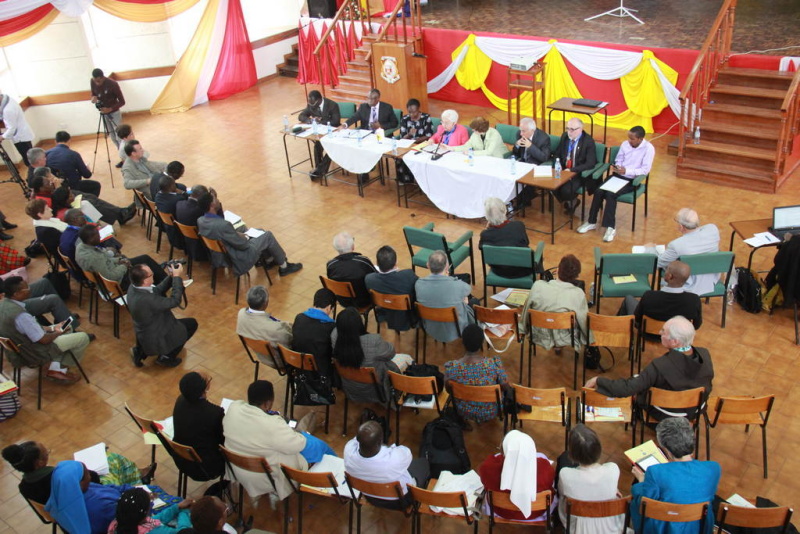
Jun 2, 2016 | Focolare Worldwide
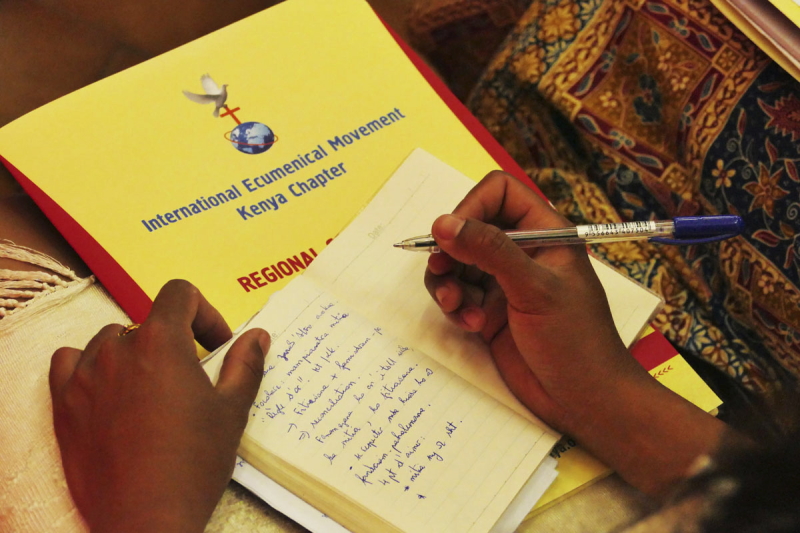 Dialogue between members of two ethnic groups in permanent conflict is what Johnson Duba, a young man from Marsabit, in northern Kenya, works hard for. He often succeeded in persuading the village elders to come together in a spirit of dialogue in order to restore peace in the community. When it came to young people, however, his attempts to unite them came about through sport. He initiated a football tournament, where nobody actually wins, in order to strengthen peaceful cohabitation. It is one of the fruits of reconciliation brought about by living the charism of unity which Johnson has always tried to live in his village. His was one of the experiences presented on May 27th to the delegates of various Churches from Eastern Africa and from Europe gathered for the International Ecumenical Movement Kenyan Chapter (IEM-K). Among the guest-speakers were Rev. Dr Samuel Kobia, former General Secretary of the World Council of Churches, and former president of IEM-K, as well as Maria Voce, President of Focolare Movement who was visiting Kenya from 14 May to 1 June.
Dialogue between members of two ethnic groups in permanent conflict is what Johnson Duba, a young man from Marsabit, in northern Kenya, works hard for. He often succeeded in persuading the village elders to come together in a spirit of dialogue in order to restore peace in the community. When it came to young people, however, his attempts to unite them came about through sport. He initiated a football tournament, where nobody actually wins, in order to strengthen peaceful cohabitation. It is one of the fruits of reconciliation brought about by living the charism of unity which Johnson has always tried to live in his village. His was one of the experiences presented on May 27th to the delegates of various Churches from Eastern Africa and from Europe gathered for the International Ecumenical Movement Kenyan Chapter (IEM-K). Among the guest-speakers were Rev. Dr Samuel Kobia, former General Secretary of the World Council of Churches, and former president of IEM-K, as well as Maria Voce, President of Focolare Movement who was visiting Kenya from 14 May to 1 June. 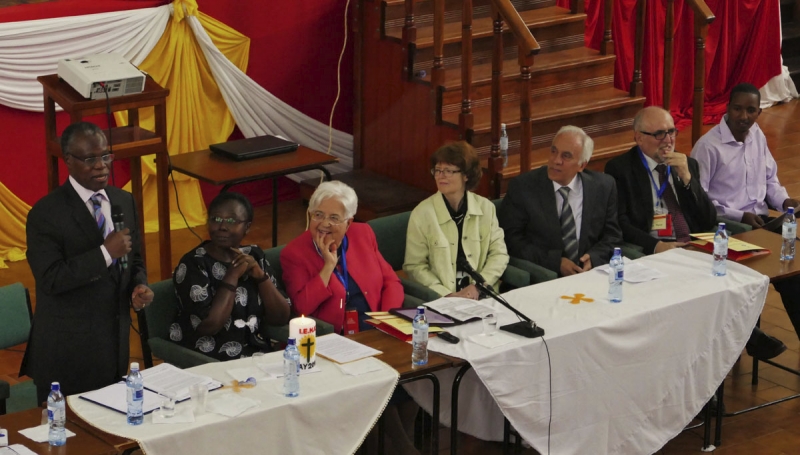 “The Focolare Movement is ecumenical by nature,” stated Rev. Dr Kobia, emphasizing his good relationship with Chiara Lubich, whom he met in person, and with the Focolare community. In his talk he stressed the importance of forgiveness saying, “We do not want to be imprisoned by the past because you can easily remain a captive of history (…) but we should deal with the past in a way that we will not pass bitterness and anger to the next generation.” He urged the Ecumenical Movement to support projects of peace, dialogue and reconciliation promoted by their governments. Moreover, in the heart of Chiara Lubich was a burning desire “to respond to the most urgent and dramatic needs of humanity, the need for peace,” recalled Maria Voce in the preliminary part of her speech. “And so,” she continued, “we started setting up places and looking for opportunities to meet within our Churches, so that there could be more and more ‘communion’. We had the experience of being a united people made up of Christians of different denominations through the sharing of the specific gifts of each Church, in the hope, one day, of also reaching doctrinal unity.”
“The Focolare Movement is ecumenical by nature,” stated Rev. Dr Kobia, emphasizing his good relationship with Chiara Lubich, whom he met in person, and with the Focolare community. In his talk he stressed the importance of forgiveness saying, “We do not want to be imprisoned by the past because you can easily remain a captive of history (…) but we should deal with the past in a way that we will not pass bitterness and anger to the next generation.” He urged the Ecumenical Movement to support projects of peace, dialogue and reconciliation promoted by their governments. Moreover, in the heart of Chiara Lubich was a burning desire “to respond to the most urgent and dramatic needs of humanity, the need for peace,” recalled Maria Voce in the preliminary part of her speech. “And so,” she continued, “we started setting up places and looking for opportunities to meet within our Churches, so that there could be more and more ‘communion’. We had the experience of being a united people made up of Christians of different denominations through the sharing of the specific gifts of each Church, in the hope, one day, of also reaching doctrinal unity.”  Dialogue, therefore, is the privileged pathway to be undertaken. This has been the experience and reflection of the Focolare Movement which has matured over these 73 years: “… a dialogue of life, which does not create opposition among people, but rather brings people of different traditions or faiths together, enabling them to open up to each other, to find points in common and to live them together.” Recalling that unity (Jesus’ prayer “That all may be one’) is the specific aim of the Focolare Movement, Maria Voce confirmed that dialogue is a way of life, a new culture, which the Movement can and would like to offer to men and women of today. She concluded by saying, “The Holy Spirit, the bond of love, will help Christians understand that they are living a precious and important time: a passing from darkness into the light of the resurrection, towards a greater fullness, in which diversity means enrichment and the opportunity to create communion: where the wounds of one will be the wounds of the others; where all together, with humility and detachment, we will try to find the essence and the origins of the one faith in Jesus, by listening to His Word”.
Dialogue, therefore, is the privileged pathway to be undertaken. This has been the experience and reflection of the Focolare Movement which has matured over these 73 years: “… a dialogue of life, which does not create opposition among people, but rather brings people of different traditions or faiths together, enabling them to open up to each other, to find points in common and to live them together.” Recalling that unity (Jesus’ prayer “That all may be one’) is the specific aim of the Focolare Movement, Maria Voce confirmed that dialogue is a way of life, a new culture, which the Movement can and would like to offer to men and women of today. She concluded by saying, “The Holy Spirit, the bond of love, will help Christians understand that they are living a precious and important time: a passing from darkness into the light of the resurrection, towards a greater fullness, in which diversity means enrichment and the opportunity to create communion: where the wounds of one will be the wounds of the others; where all together, with humility and detachment, we will try to find the essence and the origins of the one faith in Jesus, by listening to His Word”.
Willy Niyonsaba

 “I had to leave everything behind: my wife, two small children and my country. On the other hand, I didn’t have a choice. Being young and a teacher, I would have had to follow ISIS and spread its ideas. But since I opposed it, if I had remained there they would have murdered me.” When Mohamed reached Graz, Austria, like many other immigrants he was parked in a refugee camp, doing nothing for months and having absolutely no contact with the outside world. “We felt so isolated and depressed,” he recounts, “but then somebody did begin to show an intererst in us.” It was the local Focolare community which, through the mediation of a Syrian friend who had been living in Graz for three years, invited 40 of the Syrian refugees from the camp to to get together at a parish hall. This gave them the opportunity to present their precise needs: to learn the language and find a job. The community got to work and in a short time managed to put together a German lanugage course. Some gave money for books, one woman was able to find 15 bicycles from neighbours, which she had repaired at her own expense for the students that had to travel 10 km to attend the lessons. Others found odd jobs for them fixing up houses and doing gardening work. “We finally had something useful that we could do,” Mohamed whispered with relief. “Finally someone took us by the hand and appreciated us.” A friendship began that only deepened and became more heartfelt. It was only logical to get together, to share meals with one another and also to begin a cultural and religious dialogue. The first step was to attend the mosque together where they met many other people. Once, they were more than 400: “It was a great thing for us,” Mohamed confided. “Finally, we were able to feel like ourselves, there we could forget about what had happened to us and enter into direct contact with God. Sharing this moment with Muslims and Christians together made us feel even closer to one another.”
“I had to leave everything behind: my wife, two small children and my country. On the other hand, I didn’t have a choice. Being young and a teacher, I would have had to follow ISIS and spread its ideas. But since I opposed it, if I had remained there they would have murdered me.” When Mohamed reached Graz, Austria, like many other immigrants he was parked in a refugee camp, doing nothing for months and having absolutely no contact with the outside world. “We felt so isolated and depressed,” he recounts, “but then somebody did begin to show an intererst in us.” It was the local Focolare community which, through the mediation of a Syrian friend who had been living in Graz for three years, invited 40 of the Syrian refugees from the camp to to get together at a parish hall. This gave them the opportunity to present their precise needs: to learn the language and find a job. The community got to work and in a short time managed to put together a German lanugage course. Some gave money for books, one woman was able to find 15 bicycles from neighbours, which she had repaired at her own expense for the students that had to travel 10 km to attend the lessons. Others found odd jobs for them fixing up houses and doing gardening work. “We finally had something useful that we could do,” Mohamed whispered with relief. “Finally someone took us by the hand and appreciated us.” A friendship began that only deepened and became more heartfelt. It was only logical to get together, to share meals with one another and also to begin a cultural and religious dialogue. The first step was to attend the mosque together where they met many other people. Once, they were more than 400: “It was a great thing for us,” Mohamed confided. “Finally, we were able to feel like ourselves, there we could forget about what had happened to us and enter into direct contact with God. Sharing this moment with Muslims and Christians together made us feel even closer to one another.”  Four Muslims attended the summer Mariapolis, which coincided with the end of Ramadan and was celebrated by all with Arab music, dancing and Syrian sweets. During those days Mohamed learned of his mother’s death. It was a moving occasion to pray together for her and to recite some Psalms that respected everyone’s feelings. Trying to understand another person’s pain is also a form of dialogue. Mohamed then asked the Authorities for permission to reunite with his family in Austria, which turned out to be very complicated. His wife went on foot 22 times for 7 hours amidst cold, hunger and danger to the border – and was promptly sent back. Once she was even locked up in prison. But she finally managed to cross. Thus the long awaited family reunion drew nearer, but it was suggested that they settle in Vienna rather than Graz. Mohamed regretfully left his friends in Graz, unaware of the warm acceptance that would also receive amongst the Focolare community in the capital, which had been notified of his arrival. The community got busy finding a place for the family to live, which was not easy due to the scarcity of housing. They thought of some women religious friends who ran a home for the elderly. In just one day there was already a positive response thanks to a reassuring conversation with the Focolare members. So, now it’s been two months that Mohamed and his family have been living with the Catholic reverend sisters, without any inconvenience for either side: the sisters, acknowledging and respecting the customs of their Muslim guests and the family dwelling in a structure with many prominent Catholic signs. This is also part of dialogue and, as Mohamed declares: “Christians and Muslims, we’re truly brothers and sisters.”
Four Muslims attended the summer Mariapolis, which coincided with the end of Ramadan and was celebrated by all with Arab music, dancing and Syrian sweets. During those days Mohamed learned of his mother’s death. It was a moving occasion to pray together for her and to recite some Psalms that respected everyone’s feelings. Trying to understand another person’s pain is also a form of dialogue. Mohamed then asked the Authorities for permission to reunite with his family in Austria, which turned out to be very complicated. His wife went on foot 22 times for 7 hours amidst cold, hunger and danger to the border – and was promptly sent back. Once she was even locked up in prison. But she finally managed to cross. Thus the long awaited family reunion drew nearer, but it was suggested that they settle in Vienna rather than Graz. Mohamed regretfully left his friends in Graz, unaware of the warm acceptance that would also receive amongst the Focolare community in the capital, which had been notified of his arrival. The community got busy finding a place for the family to live, which was not easy due to the scarcity of housing. They thought of some women religious friends who ran a home for the elderly. In just one day there was already a positive response thanks to a reassuring conversation with the Focolare members. So, now it’s been two months that Mohamed and his family have been living with the Catholic reverend sisters, without any inconvenience for either side: the sisters, acknowledging and respecting the customs of their Muslim guests and the family dwelling in a structure with many prominent Catholic signs. This is also part of dialogue and, as Mohamed declares: “Christians and Muslims, we’re truly brothers and sisters.”




 The bi-monthly journal of the British Islamic Cultural Centre published a brief account of the recent visit to the Sophia University Institute by Dr Mohammad Ali Shomali, Director of the International Institute of Islamic Studies in Qum, Iran. Dr Shomali, who currently lives in London and directs the Islamic Centre in Great Britain, is a well-known figure in the Shia world. He is very active in the field of interreligious dialogue, and thanks to him various moments of encounter between Shi’a Muslims and Benedictine Monks have been organised organised, allowing relationships of trust to be established. The visit on 26 April to Sophia is a consequence of the long and fruitful pathway which made the shared experience and academic collaboration possible in Loppiano which has this characteristic.
The bi-monthly journal of the British Islamic Cultural Centre published a brief account of the recent visit to the Sophia University Institute by Dr Mohammad Ali Shomali, Director of the International Institute of Islamic Studies in Qum, Iran. Dr Shomali, who currently lives in London and directs the Islamic Centre in Great Britain, is a well-known figure in the Shia world. He is very active in the field of interreligious dialogue, and thanks to him various moments of encounter between Shi’a Muslims and Benedictine Monks have been organised organised, allowing relationships of trust to be established. The visit on 26 April to Sophia is a consequence of the long and fruitful pathway which made the shared experience and academic collaboration possible in Loppiano which has this characteristic. 
 The conferral of the Honorary Doctorate to Focolare foundress,
The conferral of the Honorary Doctorate to Focolare foundress, 

 “The
“The